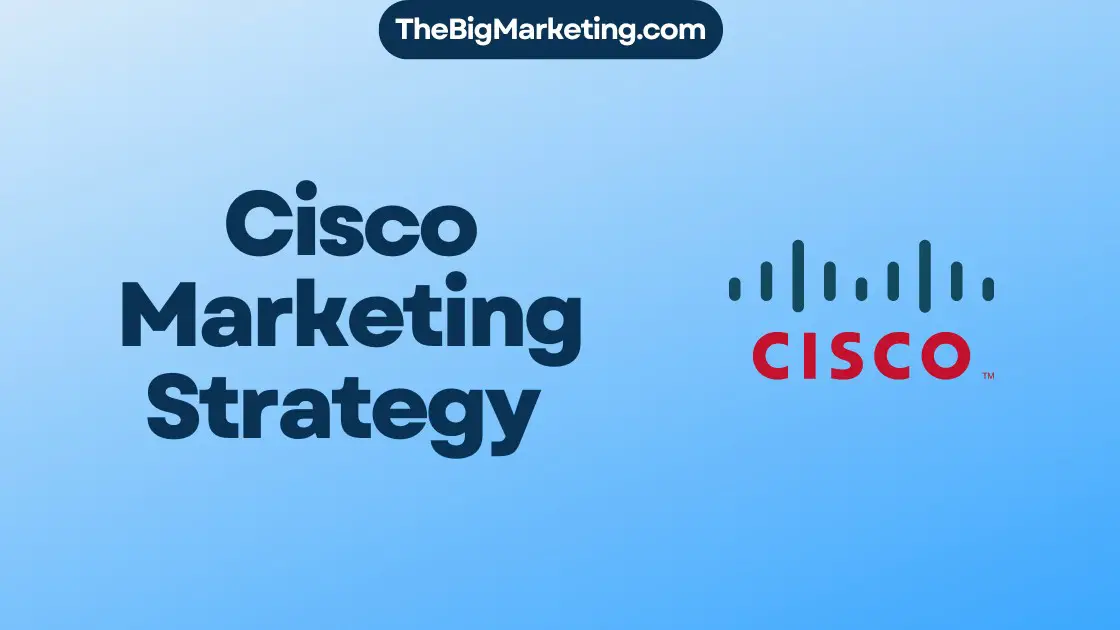Corporate social responsibility (CSR) is how companies manage their business processes responsibly. They aim to positively impact society and the environment. This includes sustainable practices, ethical marketing, and giving back to the community.
By adopting CSR, companies can boost their public image and attract more customers. Employing CSR practices can also help retain staff and interest investors. Starbucks, Home Depot, and General Motors stand out for their successful CSR efforts, benefitting both society and the environment.
Key Takeaways:
- CSR focuses on a company’s social accountability to itself, stakeholders, and the public.
- CSR initiatives can enhance a company’s brand image and attract customers, employees, and investors.
- Companies like Starbucks, Home Depot, and General Motors exemplify successful CSR implementation.
- CSR improves society and the environment through sustainable practices, ethical marketing, and corporate philanthropy.
- CSR is an essential aspect of corporate success in the modern business landscape.
Understanding Corporate Social Responsibility (CSR)
Corporate social responsibility (CSR) is about businesses helping society and the environment. It covers four key areas: environment, ethics, charity, and finances. Through CSR, companies of all sizes can better society. They also boost their reputation and accountability.
CSR isn’t just for big companies; smaller businesses can join in too. They can start social responsibility programs that match their values and meet community needs. By doing CSR, companies can make a real difference. They also grow a positive reputation and draw in customers who care about society.
Categories of Corporate Social Responsibility (CSR)
1. Environmental impacts: Companies go green to lower their carbon footprint, save resources, and be sustainable.
2. Ethical responsibility: Businesses maintain high ethical standards. They treat everyone fairly, are open about their practices, and ensure their supply chains are ethical too.
3. Philanthropic endeavors: Companies give back through charity work, community projects, and encouraging their employees to volunteer. This makes a positive impact on society.
4. Financial responsibilities: Companies are financially responsible. They use their money wisely in sustainable projects and support research for socially responsible products.
When companies commit to these four CSR areas, they not only help society. They also build a great company culture and earn loyal customers.
Types of CSR
Corporate Social Responsibility (CSR) includes four main areas where companies can help society and the environment. These areas are:
- Environmental Responsibility: This type ensures companies work to protect our planet. They take steps like reducing pollution and using resources wisely. These efforts help create a healthier environment for everyone.
- Ethical Responsibility: This area is about doing business in a fair and honest way. It means good working conditions and respecting human rights. Companies that are ethical earn trust and respect.
- Philanthropic Responsibility: Here, companies give back through charity and community work. They donate money, support their employees’ charities, volunteer, and sponsor events. This shows a company’s dedication to helping solve social problems.
- Financial Responsibility: This involves using money wisely to support good causes. Companies invest in sustainable and meaningful projects. They give to charities that match their values. This shows a commitment to lasting positive change.
By engaging in these CSR types, companies help create a better world. They have a positive impact on society and our planet.
Benefits of CSR
Using CSR methods offers many advantages to businesses. Consumers tend to favor and connect with companies that apply CSR. It leads to better brand recognition, lower employee turnover, and attracts investors. Companies at the forefront of environmental, social, or governance initiatives often enjoy a higher value than competitors. Moreover, CSR efforts can boost morale in the workplace and prevent potential problems.
When companies adopt CSR into their operations, they improve ties with key groups. This includes customers, employees, investors, and the broader community. Showing a commitment to sustainable and ethical practices highlights a company’s dedication. It also provides a competitive edge in today’s marketplace.
Corporate Social Responsibility in Marketing
Corporate Social Responsibility (CSR) and marketing closely work together. They can improve a company’s image, visibility, and sales. Today, more consumers care about social and environmental issues. They prefer to buy from companies that prioritize CSR.
Adding CSR to marketing means telling people about a company’s good deeds. This shows a company’s commitment to positive social and environmental change. It attracts consumers who care about these issues.
When marketing follows CSR, companies stand out from their competitors. Consumers who resonate with a company’s CSR efforts often remain loyal. They prefer choosing its products or services over others.
For effective CSR in marketing, companies should blend CSR with their branding and promotions. They can spotlight green practices, community work, and donations. Such actions reflect a company’s commitment to society.
By weaving CSR into marketing, companies draw in socially aware customers. This boosts their brand and secures a stronger market place. Also, marketing CSR contributes to societal well-being and to the company’s success.
| Benefits of Corporate Social Responsibility in Marketing | Examples |
|---|---|
|
|
Incorporating CSR in Your Business
Corporate social responsibility (CSR) lets companies make a big difference. By adding CSR to your business, you support ethical behavior. This helps build a better future.
Establish Ethical Business Practices
Start with ethical practices to add CSR to your business. Treat everyone fairly and with respect. Be open about what your business does. Welcome everyone, no matter their background.
Environmental Initiatives
Lowering your business’s environmental impact is crucial. Save energy, cut down waste, and recycle. Team up with groups that focus on nature and sustainability.
Philanthropy
Philanthropy is key for CSR. Give to causes that match your company’s goals. Offer volunteer chances for your staff. Help raise money for important community causes.
Financial Responsibility
Being financially responsible matters in CSR. Put money into social and eco-friendly projects. Spend on research for sustainable solutions. A diverse team can bring new ideas and views.
Adding CSR shows you care about society and the earth. It boosts your brand, draws in mindful customers, and helps your business in the long run.
The Value of CSR in Marketing
Corporate social responsibility (CSR) isn’t just about acting responsible socially and environmentally. It’s also key in marketing and boosting brand reputation. By using CSR in their marketing plans, firms connect better with their audience, beyond just ads and promotions.
CSR in marketing mainly boosts visibility. It draws positive attention when firms actively work on CSR projects and share them well. This attention improves brand recognition and grows the customer base.
CSR helps with search engine optimization (SEO) through engaging content. Firms can use CSR content to mix in keywords. This blends their main business with the social or environmental issues they’re tackling. It makes it easier for people to find them online.
Using CSR gives firms a competitive edge. In today’s crowded market, brands that show they care about social and environmental issues can really stand out. Customers prefer to support brands that share their values. This makes CSR a strong way to be different.
CSR also positively affects a brand’s reputation. Being active in social and environmental causes builds a caring brand image. This boosts trust and loyalty among customers, leading to more positive word-of-mouth.
Opening Up New Opportunities
Through CSR marketing, firms can find new partnering chances. There’re many groups and people eager to work with caring businesses for common goals. These partnerships can bring joint projects, shared resources, and bigger networks. This opens up new markets and customer groups.
Showing a commitment to a positive societal impact draws in loyal customers. These customers care more about what the brand stands for than just its products or services. They’re likely to support the brand, share their good experiences, and influence others to pick the brand too.
In the end, CSR in marketing leads to sustainable growth. It shows a company is forward-thinking and innovative. This attracts investors who want to back sustainable and responsible businesses.
CSR in marketing is truly valuable. It helps companies connect better with customers, gain visibility, improve online search ranking, better the brand’s reputation, unlock new opportunities, and drive long-term growth. CSR efforts benefit a company’s profits and make a real societal difference.
CSR Certifications
CSR certifications show the world a company cares about social responsibility. They prove a company works hard to be socially and environmentally responsible. This helps them show their good work to people who might invest or be interested.
B-corp Certification
B-corp certification is for companies that really make a difference. They meet tough requirements for helping society and the environment. Being B-corp certified means a company is serious about doing good and leading by example.
ISEAL Code Compliance
The ISEAL Alliance sets important standards for being sustainable. If a company follows these rules, it means they’re committed to being ethical and responsible. Meeting the ISEAL code shows a company is at the top in caring for society and the planet.
SASB Standards
The SASB gives companies a way to talk about how they’re doing good in business terms. It offers guidelines for reporting on sustainability. This helps investors understand a company’s value and its work in sustainability.
By getting these certifications, a company shows it’s truly dedicated to making a difference. This draws in customers, investors, and partners who value ethics and responsibility.
| CSR Certification | Description |
|---|---|
| B-corp Certification | Recognizes companies that meet high standards of social and environmental performance. |
| ISEAL Code Compliance | Validates a company’s adherence to credible sustainability standards. |
| SASB Standards | Enables companies to effectively communicate the financial impact of their CSR and ESG efforts. |
Why CSR is Important
Corporate Social Responsibility (CSR) is not just a popular term. It’s key for a business’s success and growth. In today’s world, people care a lot about how companies affect society and the environment. They support brands that share their values and make a positive impact.
When companies show they care about social and environmental issues, people notice. This makes customers trust and stay loyal to the brand. Companies that focus on CSR stand out. They also improve their brand’s value.
CSR helps companies attract and keep the best employees. Workers want employers who care about social and environmental issues. Companies that include CSR in their culture draw in employees who want to make a difference. This leads to devoted staff and less turnover.
Investors pay more attention to CSR too. They believe that responsible businesses are more likely to succeed long-term. Companies that focus on CSR attract these investors. They share common values and goals for sustainability.
CSR is essential for any business. It sets a company apart, builds a good reputation, and draws in customers and employees. It also helps form strong relations with investors. With CSR, businesses can positively impact society, the environment, and their profits.
Benefits of CSR
CSR initiatives bring several benefits to companies. Here’s how they help:
- Improved brand reputation and recognition
- Increased customer loyalty and engagement
- Reduced employee turnover and improved morale
- Enhanced public perception and trust
- Attractiveness to socially conscious investors
- Long-term growth and sustainability
| Benefits of CSR | Description |
|---|---|
| Improved brand reputation and recognition | CSR initiatives enhance a company’s brand image and reputation, leading to increased recognition in the marketplace. |
| Increased customer loyalty and engagement | Customers are more likely to support companies that prioritize CSR, leading to higher levels of customer loyalty and engagement. |
| Reduced employee turnover and improved morale | CSR initiatives create a positive work environment, leading to higher employee satisfaction, reduced turnover, and improved morale. |
| Enhanced public perception and trust | CSR demonstrates a company’s commitment to social and environmental responsibility, fostering trust and positive public perception. |
| Attractiveness to socially conscious investors | Investors increasingly prioritize CSR goals, making socially responsible companies more attractive for investment opportunities. |
| Long-term growth and sustainability | CSR initiatives contribute to the long-term growth and sustainability of businesses, ensuring their continued success. |
Examples of CSR Companies
Today, many companies are adopting corporate social responsibility (CSR). They do this by adding sustainable practices to their work. Let’s check out some famous CSR companies making a difference in society and nature.
1. LEGO
LEGO, known for its toys, is fighting climate change and waste. They plan to use renewable energy fully and cut waste completely by 2030. LEGO also works on sustainable materials for their famous blocks.
2. TOMS
TOMS shoes has a special CSR approach. For each pair sold, they give a pair to someone in need. Their “One for One” program helps with health and education worldwide. TOMS mixes business with helping others, benefiting many people.
3. Johnson & Johnson
Johnson & Johnson focuses on CSR through green energy efforts. They’re saving energy with solar panels and renewable power in their buildings. This company also ensures their products are eco-friendly from start to finish.
These companies show how integrating CSR can make a real difference. They tackle environmental challenges, support good causes, and adopt green practices. This not only makes the world better but also boosts their image.
The Role of CSR in Business Success
Corporate Social Responsibility (CSR) is key for a company’s success. It helps improve the company’s image and attracts both customers and investors. CSR shows a firm’s dedication to positive societal and environmental impact, beyond just making money.
CSR makes companies stand out from the competition. It helps build a good reputation. Customers prefer companies that share their values, creating a loyal following.
CSR is also great for keeping employees happy and loyal. Workers today want to be part of companies that care about society. CSR programs can increase employees’ satisfaction, making them more productive and committed.
Investors are also drawn to companies with strong CSR. They now look at how a firm impacts the environment and society, not just its profits. Companies that practice CSR show they’re about more than just money. This attracts investors who care about ethics and sustainability.
CSR impacts a business in many ways. It improves reputation, draws in customers and keeps employees content. It also makes a company more attractive to investors. Firms with strong CSR policies stand out and do good for society and the environment. This leads to loyal customers, happier workers, and solid growth.
Conclusion
Having Corporate Social Responsibility (CSR) in a company’s marketing plan is key for lasting success. It makes the brand more appealing and draws in both customers and employees. It also increases visibility and boosts sales. Through CSR, companies can positively impact the world around them and their own profit.
CSR boosts a company’s good name and helps it win people’s trust. Consumers prefer companies that care about social and environmental issues. This leads to stronger brand loyalty and keeps customers coming back. Also, companies with good CSR programs attract and keep the best employees, creating a better workplace.
Moreover, CSR sets a company apart in a crowded market. By sharing their CSR work, companies can capture the attention of consumers who care about these issues. This helps build a unique brand identity. Thus, using CSR in marketing is not just good for the world but also for a company’s growth.







